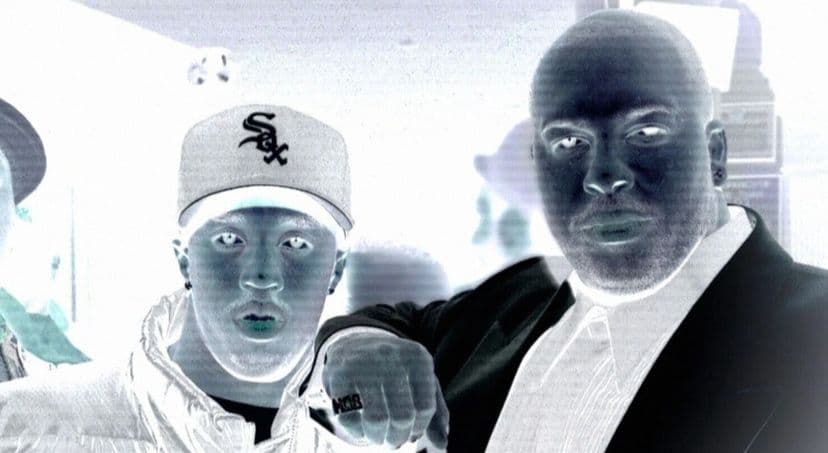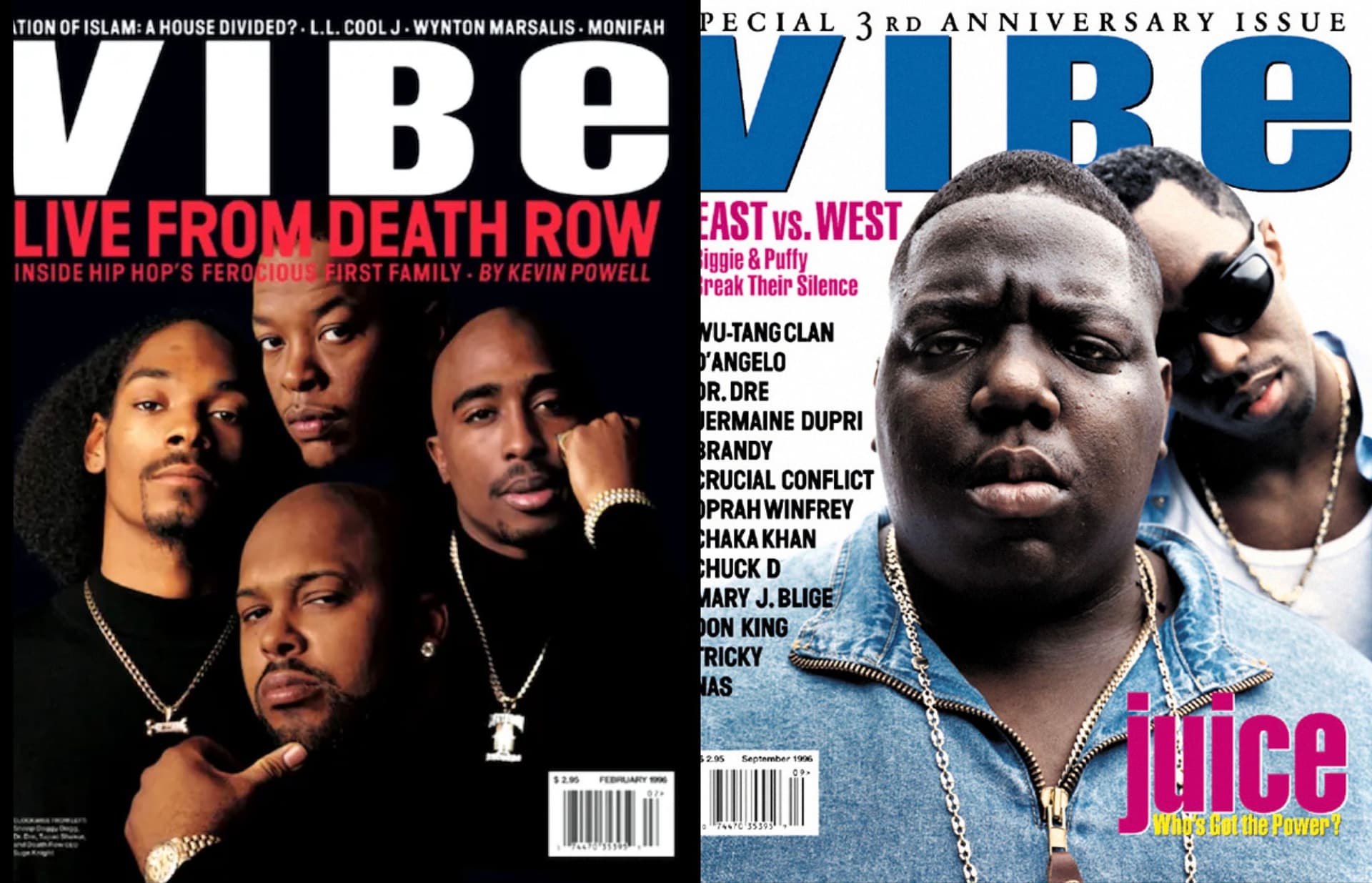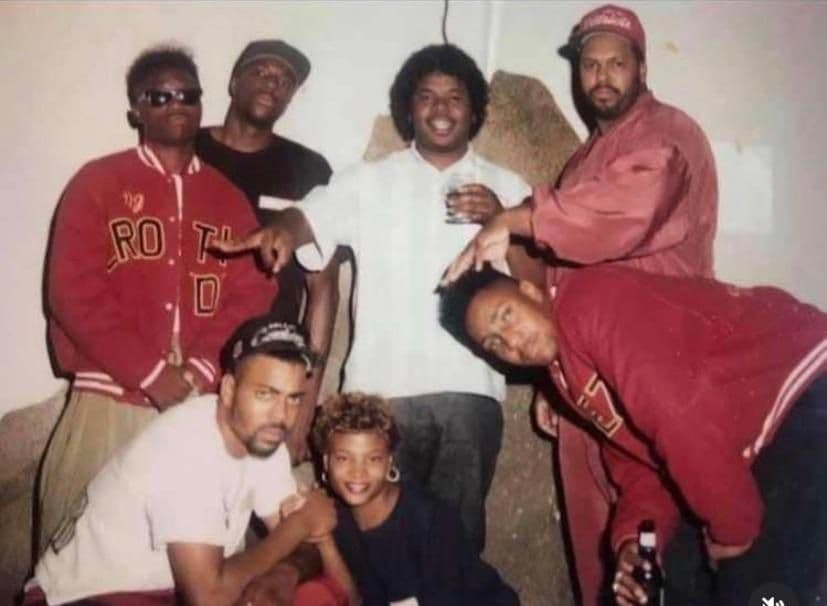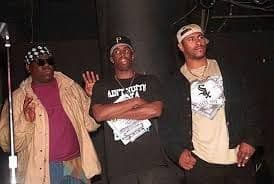2024-09-28
Puff and Suge: American Dream Turned Nightmare
By Jamil Weeks

It was all a dream. Nearly 30 years ago, a music genre that had been written off as a trendy fad in the 80s was continuing to captivate the minds of American youth. The rise in the popularity of rap music gave birth to two legendary record labels that would represent the biggest markets on opposite coasts. From the west, former bodyguard, Suge Knight, would join forces with The D.O.C., Dr. Dre, and a mysterious street figure, Harry-O, to form Death Row Records. In the east, a young, energetic business mogul named Sean “Puffy” Combs would create the formula that East Coast hip hop artists would use to compete with the West Coast dominance over the genre with Bad Boy Entertainment. Both labels would generate millions in sales, loading their rosters with some of the biggest superstars of the 90s. Puffy and Suge would turn themselves into stars as they began to be acknowledged for their business acumen and ability for discovering talent. However, with money and fame came more power, and ultimately power corrupts. As a teenager witnessing the rise of both empires in real time, you could not have convinced me that the stories of both of these prominent trailblazers would end with both men behind bars. Sadly, today both men find themselves trapped within the belly of the beast by the American justice system.

Before Suge became known for being an industry bully, he was known for his athleticism. Hailing from Compton, California, Suge was a standout football and track star who ultimately ended up playing for UNLV. After a brief career in the NFL as a Los Angeles Ram, Suge shifted career paths to the music industry. Suge was able to learn about the music business through being a party promoter and a bodyguard. By the end of the 80s, he graduated to owning his own publishing company. Continuing to claw his way up the success ladder, he would go on to sign acts like DJ Quik and the D.O.C. with his own artist management company. Suge would fatefully cross paths with the prototypical gangsta rap group, NWA. Forming a bond with Dre over his financial issues with Ruthless Records CEOs, Eazy E and Jerry Heller, Suge helped Dre facilitate an early exit from that situation. Suge and company would make history in the next chapter of his life by forming the world’s most dangerous record label, Death Row. Assembling a roster that included Dr. Dre, The D.O.C., Snoop Doggy Dogg, The Dogg Pound, Nate Dogg, Lady of Rage, Michel’le, and others, Death Row spread their G Funk gospel worldwide with some of the biggest classic albums in hip hop with The Chronic and Doggystyle. The game would never be the same after Suge bailed 2Pac out of prison to join The Row, releasing arguably the greatest double album, All Eyez On Me. With Dr. Dre, Snoop, and Pac on the same label, Death Row had become the modern day version of Motown. Suge was living the American Dream, before that dream would begin to crumble.
The Harlem born, Mount Vernon raised Puffy began his career in the music business as an intern at Uptown Records. With Andre Harrell as his mentor, Puff learned about the music industry as he became instrumental in shaping the careers of Jodeci and Mary J. Blige. However, Harrell would end up firing Puff due to insubordination. This setback turned out to be a setup for future success. Puff would use the lessons he learned from his experiences at Uptown to forge his own path in the game by establishing Bad Boy Entertainment. With rapper, Craig Mack, and producer, East Mo Bee, laying the foundation, Puffy would later create a signature Bad Boy sound with the formation of in-house production team, The Hitmen. Bad Boy would strike gold with the signing of Biggie, who got his start with Puff during his Uptown days. Puff and Big would create the blueprint for East Coast platinum success, which would later be adapted by Nas and Jay-Z. As Bad Boy helped to shift the spotlight back on New York City, they accumulated artists like 112, Faith Evans, The LOX, and Mase along the way. Riding the wave of multi platinum albums like Biggie’s Ready to Die and Life After Death, Mase’s Harlem World, and Puffy’s No Way Out, Bad Boy joined Death Row as being one of the biggest labels in hip hop during the 90s. However, as time would reveal, the success would mutate into a curse.

Tension was brewing in the mid 90s. Pac was ambushed in Quad Studios as Biggie, Puffy, and Junior Mafia were working on music in an upstairs studio. The ‘95 Source Awards in New York City was historic. Andre 3000 proclaimed in front of a booing hometown audience that the South had something to say. However, Suge would steal the show once onstage by unexpectedly dissing Puffy to the dismay of shocked onlookers. Then a close friend of Suge, Jake Robles, was killed at a Jermaine Dupri party in Atlanta, allegedly by an associate of Puffy. These three events were the catalyst for what the media irresponsibly classified as coastal warfare. Lines were drawn in the sand. A quarrel between the two CEOs had ballooned into an East Coast/West Coast war, with each of the label’s stars, Biggie and Pac, at the forefront. While Suge and Death Row were seen as the aggressors publicly, behind the scenes Puff and Bad Boy were rumored to be moving in silence and violence. Both labels had street ties to Compton rival gangs, with Death Row being affiliated with MOB/Leuders Park Pirus and Bad Boy aligning with Southside Compton Crips for security on the west coast. There was a bounty placed on Death Row chains, reportedly by Puff with unsubstantiated rumors. All while subliminal and direct disses and threats were being directed back and forth between the two camps in mixtapes, album cuts, and media interviews. While Puff and Suge may not have personally orchestrated or participated in the slayings of two of the biggest rap stars in the music genre’s history, the energy circulating around their feud certainly created the set of circumstances that eventually led to their murders. In a perfect world, the two ambitious moguls would have found common ground to work with each other instead of against each other. A mid 90s record with Snoop and Biggie had potential to be one of the biggest hit records ever. What is unforgivable is that the unfortunate and premature deaths of Biggie and Pac took place under Puff and Suge's watch.

The more power Suge gained, the more he lost his way. Suge's rise in the music industry was partially due to his strong-arm and nefarious tactics. He scored a major win for his publishing company early in his career through the rumored intimidation of Vanilla Ice over the rights to the hit song “Ice Ice Baby”. Legend has it that Suge also helped free Dr. Dre from those Ruthless Records shackles through threats involving baseball bats towards Eazy E and Jerry Heller, although there is no concrete proof of such sinister encounters. Suge gained a fearsome reputation as there were reports of numerous vicious beatings swirling through the music industry involving the Death Row label. The documentary, Welcome to Death Row, painted Suge as someone who gradually became more hungry for power once he got a taste of the spotlight. Through associations with Jimmy Iovine (CEO of Interscope Records) and celebrity lawyer, David Kenner, Suge began to slowly sever ties with people who helped him in the beginning, rather it was Dick Griffey, Harry-O, Dr. Dre, or The D.O.C., to obtain complete control of Death Row for himself. By moving backwards in affiliating himself with real gang members who were still banging, Suge would involve himself in one too many negative incidences that would lead to him becoming a guest of the American prison system. From beating a man and firing a bullet into a wall, to participating in the beat down of Orlando Anderson, and later the murder of his friend, Terry Carter, Suge’s propensity for violence sabatoged his careers. Suge being too close to the streets indirectly led to a vicious gang war between two rival Piru sets in Compton that claimed the lives of multiple black men, many of whom were associated with his “homeboy security” on Death Row. Today Suge sits behind bars serving a 28 year sentence for manslaughter instead of behind a desk in an office overlooking the city. The same street mentality that gave Suge a false sense of invincibility as he rose to power also led to his dramatic fall from grace.
Meanwhile, Puff emerged from the East/West war stronger than ever. However, as Puff expanded his empire through his Sean John clothing line, having a stake in Revolt, movies, a pair of restaurants, a multi-million deal with Ciroc, lavish parties, and philanthropy, rumors started to surface of his grimy and shady business dealings in the industry. So many people associated with Puff ended up dying, going to prison, or involved with legal issues that the phrase, “Bad Boy curse”, was coined. In the aftermath of Biggie’s murder, Puff was seen as a sympathetic figure in the public eye. Then there were incidents, like the beat down of Steve Stoute in Puff’s office and the nightclub shooting, that began to chip away at that facade. Still Puffy remained untouchable for years. Just as Forbes designated him as a billionaire and Mayor, Eric Adams, was handing him a key to the city, the foundation beneath him was about to give way. Puff’s ex-girlfriend and singer, Cassie, unleashed a bombshell of scandalous accusations in a civil suit against Puff involving domestic abuse and rape. Diddy settled the lawsuit the next day but soon multiple alleged victims would approach law enforcement and media with similar accusations against Puff. Then video footage surfaced of Puffy shoving, kicking, and dragging Cassie in a hotel hallway. As the footage of the assault went viral, Puffy’s reputation started to take a beating. Puff began losing deals as companies distanced themselves from him. Earlier this summer, Homeland Security organized a simultaneous multi-state raid of Puff’s properties in California, Florida, and New York. At this point it was only a matter of time before an arrest was made. Today the disgraced mogul sits in a Brooklyn jail, ironically not far away from Biggie’s stomping grounds. Puff is facing federal charges involving racketeering, sex trafficking, and transportation to engage in prostitution. All this as more accusers pile up by the day and a Netflix documentary from another rival, 50 Cent, is in the works. Like Suge, Puff let power consume him to the point it destroyed him. Going back to his Uptown Records days where overselling a venue led to the senseless deaths of multiple people, Puff exposed himself for having sociopathic tendencies. It is rumored that Puff coerced people into attending his drug-fueled “freak offs” and secretly taped these individuals to blackmail them. If theories are true about these tapes, Puff is going to take down many entertainers, athletes, and politicians with him. At the end of the day, Puff proved to be more diabolical than Suge on his worst day.

Puff and Suge were on top of the world 30 years ago. Young, rich, and an unbridled ambition with their whole lives ahead of them. Unfortunately, their irresponsible actions led both to being nothing more than cautionary tales that not only stained their complicated legacies, but also put a stain on hip hop as a whole. The financial gains from Bad Boy and Death Row should have been transformative for everyone involved. All those artists, producers, executives, and employees should be rich today. Instead many people who are linked to both labels are currently either dead or in jail. Puff and Suge evolved into megalomaniac monsters, drunk off their own power. Although many are relishing in their downfall, it is sad to see two innovators that are responsible for some of the greatest music ever recorded in hip hop ultimately end up as statistics. They were supposed to defy the odds. Their success was bigger than them. They symbolized hope to a marginalized community. All the positivity they inspired is overshadowed by their misdeeds. With all the people they victimized and livelihoods destroyed at their hands, karma has come back to deliver a devastating blow to both of them. Yes, it was all a dream. Today, however, it has devolved into a nightmare that has affected family, friends and associates of both individuals. Rest in peace Christopher Wallace. Rest in peace Jake Robles. Rest in peace Tupac Shakur. Rest in peace Terry Carter.